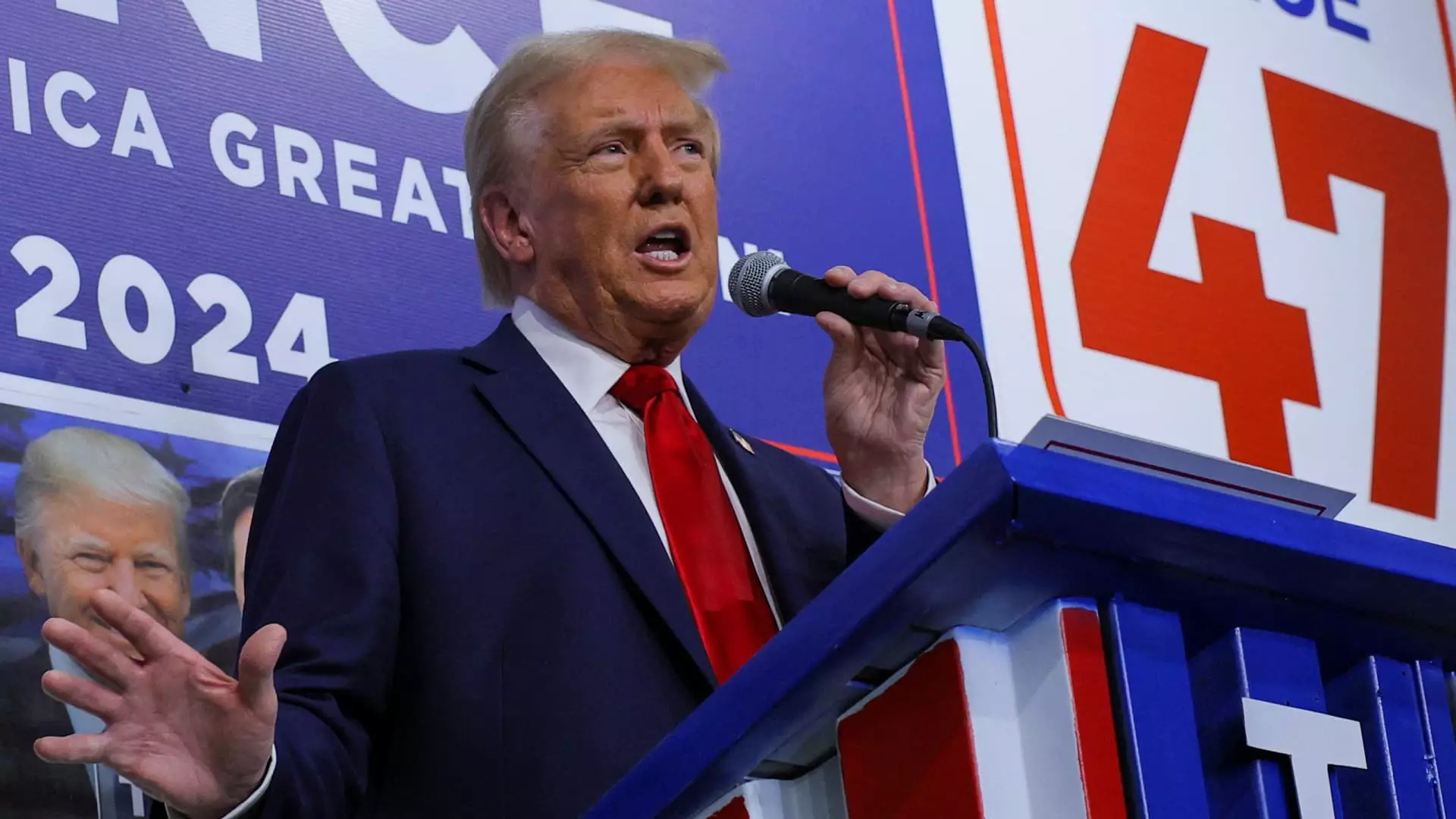Recent polling data from NBC News reveals a significant shift in voter sentiment regarding universal tariffs, a key economic initiative advocated by former President Donald Trump. The numbers indicate that a substantial 44% of respondents expressed reluctance to support candidates proposing tariffs as high as 20% on imports. The finding is rather striking, suggesting a growing unease among voters about the implications of such economic policies. Conversely, 35% of those surveyed indicated a greater willingness to back candidates with these tariff proposals, while 19% were indifferent. This dichotomy underscores a deep-seated ambivalence toward tariffs, reflecting broader economic concerns that transcend mere party lines.
The poll, which encompassed 1,000 registered voters between October 4 and October 8, has a margin of error of plus or minus 3.1 percentage points, offering a glimpse into public opinion during a critical period leading up to the elections. It signifies a political challenge for Trump, whose rigid stance on tariffs may not resonate as favorably with a diverse voter base as he once anticipated.
Despite the apparent unpopularity of universal tariffs, Trump remains steadfast in his position, believing that higher tariffs will incentivize companies to shift production back to the United States. In a recent interview at the Economic Club of Chicago, Trump rationalized his approach by stating that exorbitant tariffs would compel companies to establish factories domestically to avoid additional costs. His forecast speculates that strong tariffs will not only secure manufacturing jobs but also serve as a revenue stream to support his other policy initiatives.
However, this perspective raises complex questions about the long-term feasibility of such a strategy. While the initial logic might suggest a boon for American manufacturing, many economists argue that blanket tariffs can yield unintended consequences. Such policies are often seen as increasing costs for domestic importers, who are likely to pass these additional expenses onto consumers, potentially leading to a rise in inflation. This presents a unique paradox in Trump’s economic policy: while aiming to bolster the domestic economy, he risks exacerbating inflationary pressures that can affect everyday Americans.
Internal GOP Dissent and Broader Implications
Intriguingly, Trump’s tariff policies are not universally embraced within his party, as evidenced by Republican Senate Minority Leader Mitch McConnell’s recent criticisms. McConnell’s assertion that tariffs typically drive up consumer prices highlights a notable fracture in the Republican Party regarding trade policy. This division raises questions about the party’s coherence and its electoral strategy, particularly in light of the recent polling indicating significant voter skepticism towards tariffs.
Furthermore, Trump’s tariff proposals have almost been branded as a “Trump sales tax” by his Democratic opponent, Vice President Kamala Harris. This label effectively reframes the tariff discussion in a way that may alienate even more central voters concerned about rising consumer prices. The Biden-Harris administration’s own approach to tariffs has been more calculated, emphasizing a targeted strategy aimed at specific sectors rather than sweeping, universal applications. Treasury Secretary Janet Yellen articulated this distinction, arguing that their administration has favored carefully crafted tariffs in sectors deemed critical for U.S. economic interests.
As the political landscape continues to evolve, the implications of these tariff discussions remain profound. The contrasting approaches of the Biden-Harris administration and Trump’s proposals create a stark choice for voters who are increasingly attuned to the complexities of trade policies. In a nation still grappling with the effects of the COVID-19 pandemic and rising inflation, the public sentiment surrounding tariffs represents a crucial component of the overarching economic narrative.
As politicians grapple with the complexities of trade and its impact on the electorate, understanding voter concerns becomes integral to shaping effective policy. The debate surrounding universal tariffs is emblematic of larger economic dialogues, representing the intersection of political ideology and economic pragmatism in contemporary American governance. As this issue continues to unfold, observers will be keenly watching how candidates adapt their policies to align with voter sentiments and economic realities.


Leave a Reply